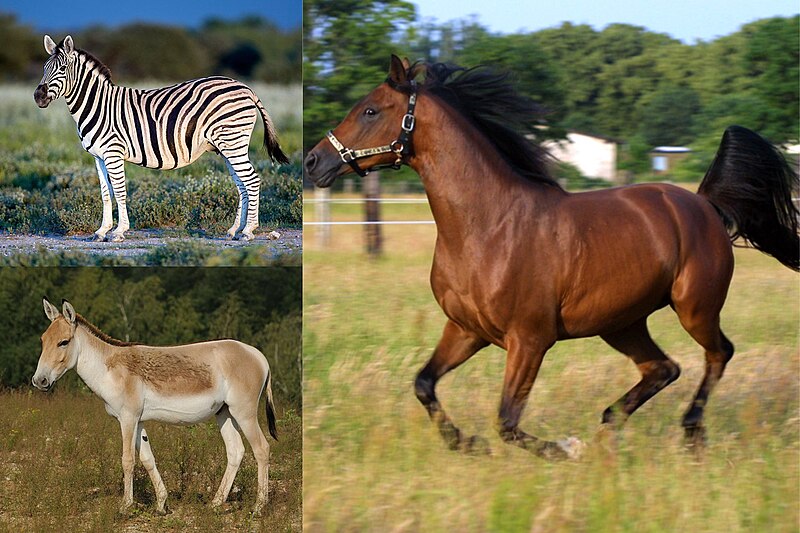They can still breed together, therefore they are the same kind.
There is no chromosomal change."
Perhaps no chromosomal change, but lots of DNA modifications which can make offspring non-viable & unsuccessful.
But, to your point: I am "evading" nothing, simply reporting how science classifies various creatures.
In their classification schemes, interbreed-ability is a major factor determining whether two different populations are of the same genus, species, sub-species or breed.
Other factors include the percent similarity of their DNAs.
Thus animals which readily and successfully interbreed (i.e., domestic dogs) are classified in the same species, regardless of how different some may look from others.
By the same logic, when scientists discover mutations in petri-dish critters, and note those new mutations prevent interbreeding with others, then they say a new species has evolved.
Why is it a new species, is it hugely different from before?
No, but since it no longer interbreeds, that makes it a new species.
In the biological family of Bovidae, bison/buffalo and cattle are separate genera, which do not normally interbreed.
However, they can be forced and do produce viable offspring, since both bison and cattle have 60 chromosomes.
However, another Bovidae genus, African Cape Buffalo, are not interbred, because they have just 52 chromosomes, so would be unlikely to produce viable offspring.
Finally, your use of the word "kind" here is interesting, since you toss if off with great certitude as to just what that Biblical term actually means.
In fact, there is no definition, either in the Bible or outside it, as to exactly what "kind" means.
And certainly, if we use the standard of ancient people's common sense, then American bison, European cattle and African Cape Buffalo would all be different "kinds" even though genetically bison & cattle can be interbred, while Cape Buffalo are not, due to their different number of chromosomes (52 vs 60).
wbarmy: "The change from genera to families is the real change, and there is no experimental evidence to show it could happen."
First of all, just so we're clear on this point: the fact that two different species have the same number of chromosomes in no way makes them closely related, or able to interbreed.
To cite just two examples, gorillas and potatoes have the same number of chromosomes (46), but are in no other sense closely related.
Likewise, humans and certain antelopes have 44 chromosomes, but certainly cannot interbreed.
Making that point again: In the elephant family Indian & African genera have the same number of chromosomes (56) but cannot be successfully interbred.
The closely related Mammoth genus had 58 chromosomes.
Point is: chromosome count is not the be-all & end-all of biological classifications.
Second, there are examples throughout nature of similar species with different numbers of chromosomes, of which I've mentioned already cattle-bison-Cape Buffalo.
Among primates, humans have 46, apes 48, some monkeys 54 but others 42, showing that the splitting or uniting of chromosome strands can happen naturally.
In the biological genus of equus (horses, donkey's, zebras), horses have 64 chromosomes, while donkeys have 62, their mule offspring end up with 63 and are usually infertile.
So genus Equus includes another example of closely related species with sometimes different chromosome counts.
